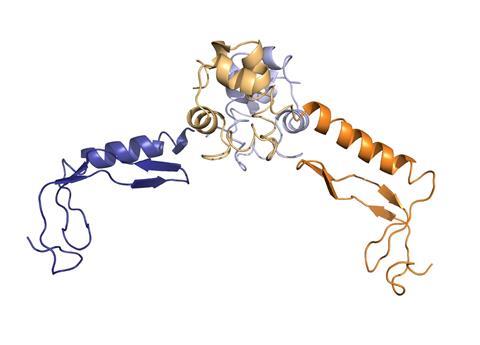Toxin/antitoxin defence systems in bacteria need to be better understood if the potential of phage therapy is to be realised, a new review suggests.

The review, ‘Diverse physiological roles of the MqsR/MqsA toxin/antitoxin system’, is published in Sustainable Microbiology, an Applied Microbiology International publication, and highlights how toxin/antitoxin systems can render antibiotics and phage therapy ineffective because of their role in bacterial dormancy.
READ MORE: Antimicrobial resistance and phage therapy in India
READ MORE: A day in the life of a phage expert
The article focuses on one of the most important toxin/antitoxin systems, that of MqsR (toxin) and MqsA (antitoxin) and shows its physiological role, said corresponding author Dr Thomas Wood of Penn State University.
Soaring deaths
“The problem this work addresses is the soaring number of deaths related to bacterial infections and the lack of novel antibiotics, with the likelihood that death by infection may be soon the number one killer,” he said.
“Moreover, bacteria fight back when attacked by phages, and the most common bacterial defense mechanism is toxin/antitoxin systems, which are present in nearly all bacteria and archaea and often present in far more than one system in each species (e.g., about 50 in E. coli and 90 in Mycobacterium tuberculosis).
“Currently, scientists are just realizing toxin/antitoxin systems are important for phage inhibition - we discovered this in 1996 and now the concept is accepted worldwide - and the new paradigm that toxin/antitoxin systems cause dormancy during phage infection needs to be disseminated.”
Panacea or not?
Dr Wood warned that phages are currently viewed as a panacea that will eradicate bacterial infections - but the reality is less straightforward. The implication of the review is that we will need to make modifications in how we use phages to replace antibiotics.
“This work creates a paradigm shift in our thinking of using phages as antibiotics - they may not be a panacea in that dormant cells are generated. This applies as well for using phages for agriculture and global warming applications,” he says.
“More work needs to be done to investigate the resting state of persistence (dormancy) in regard to using phages to treat infections. Persister cells must be eradicated or the infection will be reconstituted.”
Dr Wood led and supported the review with Professor Viviana Sanchez-Torres of Universidad Industrial de Santander and Joy Kirigo of Penn State.
‘Diverse physiological roles of the MqsR/MqsA toxin/antitoxin system’ appears in Sustainable Microbiology,







No comments yet